Anxiety
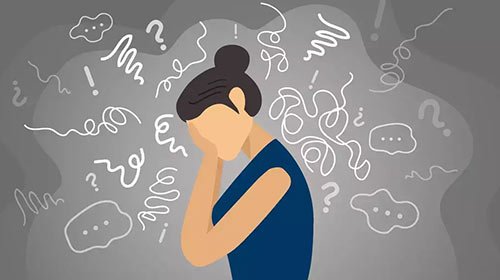
Anxiety is a sensation of discomfort and is frequently generalized and unfocused as a response to a circumstance that is only seen as dangerous subjectively. It is often accompanied with muscle tension, restlessness, weariness, breathing difficulty, abdominal tightness, nausea, and concentration issues. Anxiety is closely associated to fear, which is a reaction to an actual or perceived immediate danger (fight or flight response); although anxiety is more often a response to the prospect of a future threat, which includes dread. People who are anxious may retreat from circumstances that have previously caused them worry.
Though anxiety is a typical human reaction, it may be labeled as an anxiety disorder if it is severe or persists beyond developmentally acceptable intervals. There are many types of anxiety disorders, each with its own clinical description (for example, Generalized Anxiety Disorder and Obsessive-Compulsive Disorder). Part of what separates an anxiety disorder from everyday anxiety is that it is persistent, often lasting 6 months or more, but the length requirement is meant as a general guide with some leeway and is occasionally of shorter duration in youngsters.
To prevent thoughts of fear and dread, your symptoms may force you to retreat from social interaction (visiting relatives and friends). You may also find going to work tough and unpleasant, and you may need to miss work. These activities may cause you to be even more concerned about yourself and exacerbate your low self-esteem.
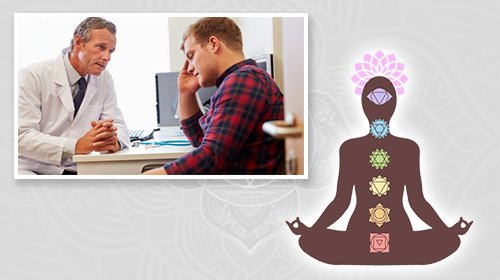
Everyone has anxiety at some time in their lives. For example, you may be frightened and apprehensive about taking an exam, taking a medical test, or going on a job interview. Anxiety is quite typical during situations like this. However, some individuals struggle to keep their fears in check. Their worry is more persistent and often interferes with their everyday life. When the distress produced by anxiety affects various aspects of an individual’s life, such as personal, relationships, and professional performance, a consultation with a doctor should be considered, especially if the condition does not resolve itself.
Once the diagnosis has been established and medical treatment has begun, the patient might consider beginning professional Chakra Therapy to enhance and speed up recovery while providing holistic and ultimate healing.
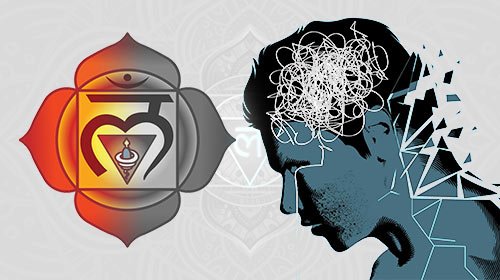
Anxiety stems from the Muladhara Chakra’s location. Inhibition of the Muladhara Chakra or Root Chakra, which directs the survival instinct and drive (which is governed by this Chakra), results in a distorted picture of survival, creating uneasiness and fears that make it difficult to face life with a stable foundation of confidence. This Chakra provides support and stability in one’s life, as well as the ability to deal with challenges. When it is obstructed, one feels anxious when confronted with obstacles or facing any challenge. Anxiety manifests itself in a variety of psychological and physical manifestations. Unlocking this energy center will certainly provide a safe base for the person face life fearlessness.
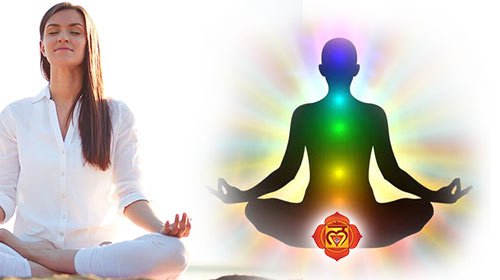
Chakra Therapy is a unique technique to open the blocked Chakras in the body and treat the ailments caused by these blockages. Chakra Therapy is an alternative therapy that does not have any side effects and treats not only the disease but transforms the affected individual to find their purpose in life and face it with renewed energy and vigor.
Chakra therapy opens the Muladhara Chakra and with the resulting restored energy and vitality the individual can counteract anxiety disorders.

Anxiety’s spiritual cause is always linked to the future. Anxiety occurs when our minds are fixed on a future event with feelings of fear and uncertainty about the outcome, whether it is a personal event, something related to our relationships, business, or something else. When we revert back our attention to the present moment, the distress caused by anxiety begins to fade and we start feeling better.
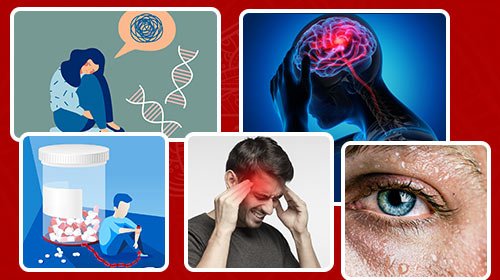
Causes
- Genetics
- Chronic stress
- Neurological imbalance
- Substance abuse
Symptoms
- Headaches
- Chest pain
- Loss of appetite
- Muscle tension
- Sweating
- Breathlessness
- Feeling heat
- Shaking
Chakra Associated with
- Muladhara Chakra
Chakra Blocked By
- Living in a Fantasy world and not being grounded and practical. Constantly polluting mind with thoughts of not being stable/supported or not having enough money. Being lazy and avoiding challenges to be faced in life.
Chakra Unblocked When
- Becoming practical and grounded, standing on your own feet and facing reality.
Rudraksha for Treating Anxiety
- 8 mukhi Rudraksha
Gemstone for Treating Anxiety
- Coral
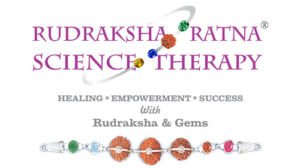
Rudraksha Ratna Science Therapy (RRST) uses specific Rudraksha and Ratna (gemstone) in precise advanced stringing methodology for chakra awakening and healing.
A blocked Muladhara Chakra can be opened with the use of Rudraksha, gemstones and other techniques. Choosing the appropriate Rudraksha and Ratna as well as wearing them as per RRST methodology unblocks the Root Chakra and prevents and controls anxiety.






